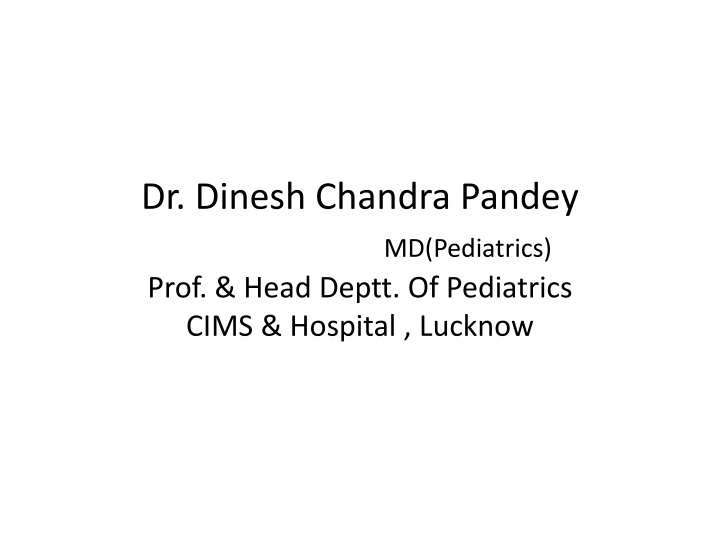
Understanding Pediatric Nutrition and Nutrients
Explore the significance of pediatric nutrition and nutrients, essential for growth, development, and overall well-being. Learn about the classification, functions, and importance of nutrients in supporting the body's fundamental processes.
Download Presentation

Please find below an Image/Link to download the presentation.
The content on the website is provided AS IS for your information and personal use only. It may not be sold, licensed, or shared on other websites without obtaining consent from the author. If you encounter any issues during the download, it is possible that the publisher has removed the file from their server.
You are allowed to download the files provided on this website for personal or commercial use, subject to the condition that they are used lawfully. All files are the property of their respective owners.
The content on the website is provided AS IS for your information and personal use only. It may not be sold, licensed, or shared on other websites without obtaining consent from the author.
E N D
Presentation Transcript
Dr. Dinesh Chandra Pandey MD(Pediatrics) Prof. & Head Deptt. Of Pediatrics CIMS & Hospital , Lucknow
PEDIATRIC NUTRITION & ITS DISORDER
If ever I get a chance, I should love to be reborn just to have ecstasy of being red fed by the kindly mother. Nutrition = Nourishment=Neutricus = to suckle at the Breast. Nutrition is the provision for the cells and organism of the materials necessary in the form of food to support life. Nutrition is the science that studies the relationship of human to food.ss
NUTRIENTS Science of the nutrition based on the nutrients found in the body. Nutrients are the chemical substances supplied by the food that the body need for growth, development, maintenance and repair.
Classification of Nutrients A- On the Basis of Quantity Macro Nutrients- Required in large quantity necessary for building body structure eg:- Carbohydrate. Fat. Protein. Contd. Micronutrients - Required in small quantity necessary for body metabolism and immunity eg:- Minerals Vitamins Fibers etc
B- On the Basis of Nutrients synthesis in the Body. Essential Nutrients- Body not able to synthesize these nutrients while they are important for growth and development of body. It should be must supplied by food in the diet eg. Vitamin A, Vitamin C, Calcium etc. Non -Essential Nutrients Body is able to synthesize these nutrients no need of supplementation of food in diet eg; alanine amino acid etc.
FUNCTION OF NUTRIENTS Serve as source of energy. Support the growth and maintenance of tissue. Regulation of basic body process. These life sustaining functions collectively are the part of the metabolism, the sum of all physical and chemical changes takes place in the body.
ENERGY Energy is the capacity to do work. In order to maintain body weight energy intake must be equal to energy expenditure. Energy has various forms all food enters into as a chemical energy in the body it convert into an other forms of energy like mechanical in muscle and electrical into nerves. The energy both in the food and body measured in kilocalories. Carbohydrates', fat and proteins are energy nutrients.
Energy Balance Total energy comprises -Basal Metabolic Rate (BMR)- 50%- 75% - Physical activity 20%-40% -Diet induced thessrmo genesis 10%
Nutrients Requirement of Healthy Children's Recommended Dietary Allowances (RDA) is the intake that meets the need of 97-98 percent healthy individuals in a life stage and gender group. It does serve as benchmark. It is intended for use as goal for daily intake by individuals. Deviated from RDA create nutritional imbalance in individuals.
RDA Group Infant Children 1-3 year 4-6 year 7-9 year Boys(10-12 y) 2190 Girls (10-12 y) 1970 57 Boys (13-15 y) 2450 70 22 Girls (13-15 y) 2060 Boys (16-18y) 2640 Girls (16-18 y) 2060 63 Energy(kcal ) Protein(g/d) Fat(g/d) 100/kg 2/kg 30 1240 1690 1950 22 30 41 54 25 22 65 78 22
